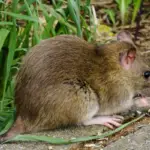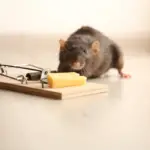Rats are a common pest that can cause significant damage to homes and buildings.
They can chew through wires, insulation, and even concrete, making them a nuisance that needs to be dealt with quickly.
One way to get rid of rats is by using poison. However, not all poisons are created equal, and some can be dangerous to other animals or even humans.
Knowing what foods kill rats can be helpful when trying to get rid of them. Some foods that are poisonous to rats include chocolate, caffeine, and alcohol.
Other foods, such as onions, garlic, and hot peppers, can also be effective in repelling rats.
However, it is important to note that using food as a poison can be risky, as it can also attract other animals or even children.
When it comes to getting rid of rats, it is important to use caution and follow proper safety protocols.
Using food as a poison should only be done as a last resort, and only in areas where other animals or people cannot access it.
In addition to using poison, there are other methods for getting rid of rats, such as traps and repellents.
By taking a comprehensive approach, homeowners can effectively get rid of rats and prevent them from causing further damage to their property.
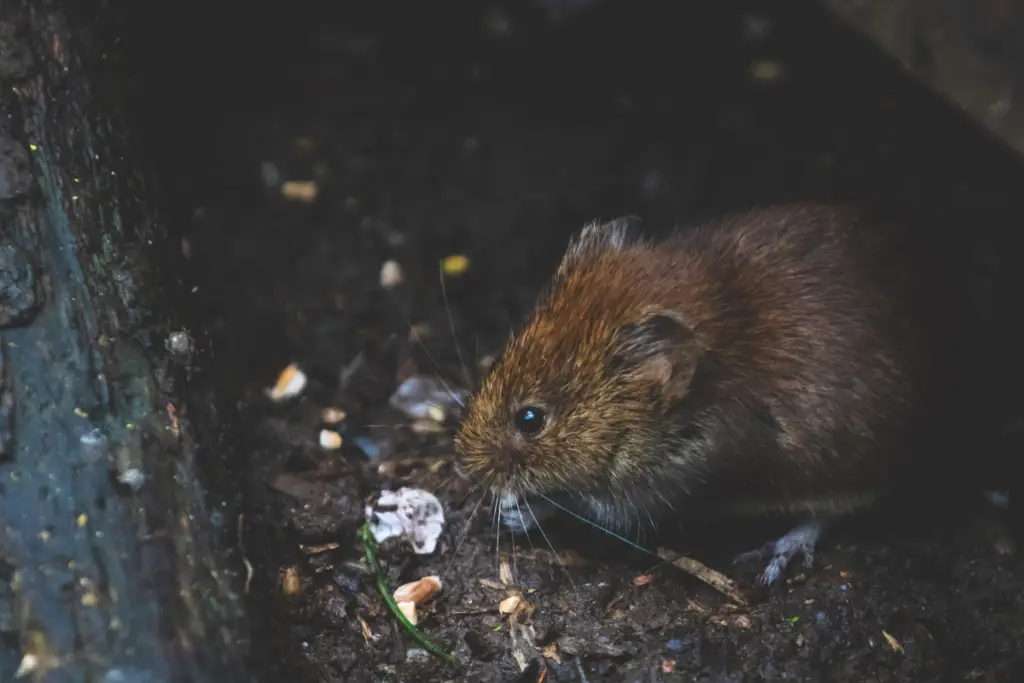
Table of Contents
Prevention Methods
Preventing rats from entering your home is the best way to avoid the need for rat-killing foods. There are two main prevention methods: sanitation practices and exclusion techniques.
Sanitation Practices
Keeping your home clean and tidy is the first line of defense against rats. Rats are attracted to food, water, and shelter. By removing these attractants, you can make your home less appealing to rats.
Here are some sanitation practices to consider:
- Store food in sealed containers
- Clean up spills and crumbs immediately
- Take out the trash regularly
- Keep your home clutter-free
- Seal any cracks or holes in walls, floors, and foundations
Exclusion Techniques
Exclusion techniques involve sealing off entry points to your home. Rats can squeeze through small openings, so it’s important to seal any gaps or cracks that are larger than a quarter inch.
Here are some exclusion techniques to consider:
- Install door sweeps on exterior doors
- Seal gaps around pipes and vents with steel wool or wire mesh
- Use caulk or foam to seal gaps around windows and doors
- Cover chimney and roof vents with wire mesh
- Repair any damaged screens on windows and doors
By implementing these prevention methods, you can reduce the likelihood of rats entering your home.
However, if you do have a rat infestation, it’s important to contact a pest control professional for safe and effective removal.
Natural Rat Killers
When it comes to getting rid of rats, there are several natural options available. These options can be just as effective as chemical poisons, without the potential harm to humans and pets.
Here are some natural rat killers that have been proven to work.
Peppermint Oil
Peppermint oil is a natural deterrent for rats. The strong scent of peppermint oil is overpowering to rats, and they will avoid any areas where it is present.
To use peppermint oil as a rat repellent, mix 20 drops of peppermint oil with 2 cups of water and spray the solution around areas where rats are present.
Repeat this process every few days to maintain the scent.
Onions and Garlic
Onions and garlic are natural rat killers that can be used in a variety of ways.
Rats are repelled by the strong scent of onions and garlic, so placing cloves of garlic or slices of onion around areas where rats are present can help keep them away.
Another option is to mix chopped onions and garlic with water and spray the solution around areas where rats are present.
Black Pepper
Black pepper is another natural rat killer that can be used to keep rats away.
Rats are repelled by the strong scent of black pepper, so placing black pepper around areas where rats are present can help keep them away.
Another option is to mix black pepper with water and spray the solution around areas where rats are present.
Bay Leaves
Bay leaves are a natural rat killer that can be used to keep rats away.
Rats are repelled by the strong scent of bay leaves, so placing bay leaves around areas where rats are present can help keep them away.
Another option is to mix crushed bay leaves with water and spray the solution around areas where rats are present.
In conclusion, there are several natural rat killers that can be used to keep rats away.
Peppermint oil, onions and garlic, black pepper, and bay leaves are all effective options that can be used alone or in combination to help get rid of rats.
By using natural rat killers, you can avoid the potential harm to humans and pets that can come with chemical poisons.
Poisonous Foods for Rats
Rats are omnivores and can eat a variety of foods. However, there are certain foods that can be toxic and even fatal to rats.
It is important to be aware of these foods and avoid feeding them to your pet rats.
Chocolate
Chocolate contains theobromine, which is toxic to rats. Theobromine can cause seizures, heart problems, and even death in rats.
Dark chocolate and baked chocolate are particularly dangerous due to their high theobromine content.
Even a small amount of chocolate can be harmful to rats, so it is best to avoid feeding them chocolate altogether.
Avocado
Avocado contains persin, a toxin that can cause respiratory distress, heart damage, and even death in rats.
The flesh of the avocado is less toxic than the skin and pit, but it is still best to avoid feeding avocados to rats altogether.
Grapes and Raisins
Grapes and raisins can cause kidney failure in rats. The exact mechanism is not well understood, but even small amounts of grapes or raisins can be toxic to rats.
It is best to avoid feeding these fruits to rats altogether.
Raw Sweet Potato
Raw sweet potato contains a toxin called solanine, which can cause digestive problems, seizures, and even death in rats.
Cooking sweet potatoes can reduce the amount of solanine, but it is still best to avoid feeding raw sweet potatoes to rats altogether.
In conclusion, there are several foods that can be toxic and even fatal to rats. It is important to be aware of these foods and avoid feeding them to your pet rats.
By providing a balanced and safe diet, you can help ensure the health and well-being of your pet rats.
Conclusion
In conclusion, while there are foods that may be harmful to rats, it is important to note that intentionally using food as a means to kill rats is generally not recommended or considered humane.
Rats are living creatures and should be treated with respect and care. It is advisable to use more humane and effective methods for controlling rat populations, such as sealing off entry points, setting up traps, or seeking assistance from professional pest control services.
While some foods are known to be toxic to rats, such as certain types of poison, it is crucial to exercise caution when dealing with toxic substances.
Using such methods can pose risks not only to the rats but also to other animals and potentially to humans as well.
It is always best to prioritize the safety and well-being of all living creatures.
If you are experiencing issues with rats or other pests, it is recommended to consult with professionals who have the knowledge and expertise to handle the situation in a safe and humane manner.
They can provide guidance on the most appropriate methods to address the problem effectively while minimizing harm to the animals and the environment.
- How to Build a Planter Box for Bamboo: A Step-by-Step Guide

- Can Robotic Lawnmowers Handle Steep Slopes?
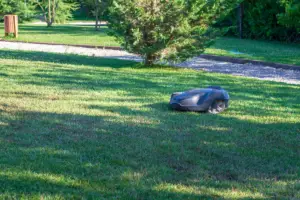
- Do You Need a Specific Lawn for a Robotic Lawnmower? Expert Advice
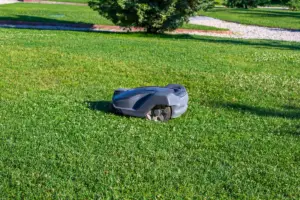
- Are Robotic Lawnmowers Safe for Pets and Children? Safety Features of Robotic Lawnmowers

- Why Use Robotic Lawnmowers? Advantages of Using a Robotic Lawnmower

- Is the GARDENA SILENO City 300 Cordless or Corded? A Clear Answer










